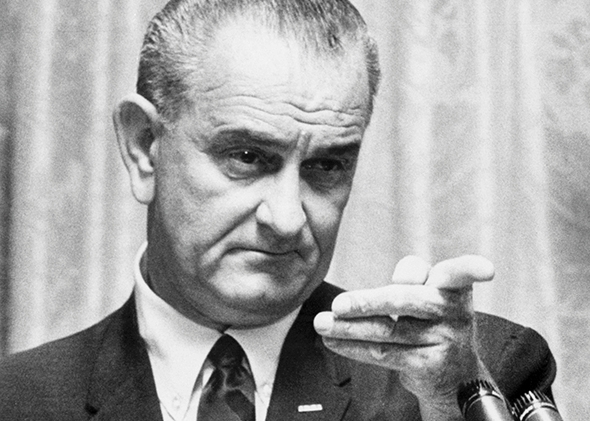
Bruce J. Schulman’s book, Lyndon B. Johnson and American Liberalism is a biographical representation of Lyndon B. Johnson life and presidency. Schulman’s depiction of President Johnson is not one widely accepted in the memory of most Americans. Yet, through analysis of Johnson’s political career, Schulman is able to credit the idea of Johnson as being a reliable leader whose influence, “[spanned] both great eras of liberal reform” (36). In Chapter two of Schulman’s book, he focuses on Johnson’s career as a senator, and portrays him as a hardworking and skilled politician.
In a time of liberal recession and backlash against the Democratic Party, Johnson proved to be a, “master of pluralist politics, deftly building coalitions and making deals between contending interests to move legislation through senate” (42). By taking a “cautious middle course,” Johnson was able to appeal to both northern liberalism and southern conservatism in congress.
Although Johnson made concessions to the conservative platform of politicians, Schulman argues that Johnson, “never compromised his bedrock liberal belief that government… must ensure prosperity for all” (43). This adherence to core liberal values can be seen through Johnson’s support of aid to education, higher minimum wage, extended rent control, farming subsidies, public housing, and many other congressional reforms.

This chapter serves to show how the reputation Johnson built while serving as a senator propelled him to national recognition. This recognition was gained through what Johnson himself called “politics of responsibility,” characterized by his mentality to appeal to both ends of the political spectrum in order to maintain public favorability. Schulman acknowledges that Johnson, “picked his battles carefully.” He would oppose the republicans on domestic policy in the wake of the 1954 economic recession, but stand with them in matters of foreign policy.
Chapter Two’s account of Johnson’s career as a US senator conveys the politician as man loyal to the people. Schulman does concede that Johnson was effected by the nature of politics at the time. He did take steps to achieve success that would mar his reputation and American’s faith in the seat of the presidency. However, when analyzing his role as a senator, Johnson’s dedication to his position enabled legislation to be passed that would help those in need. Ultimately, he worked hard to combat poverty, and improve educational standards.

